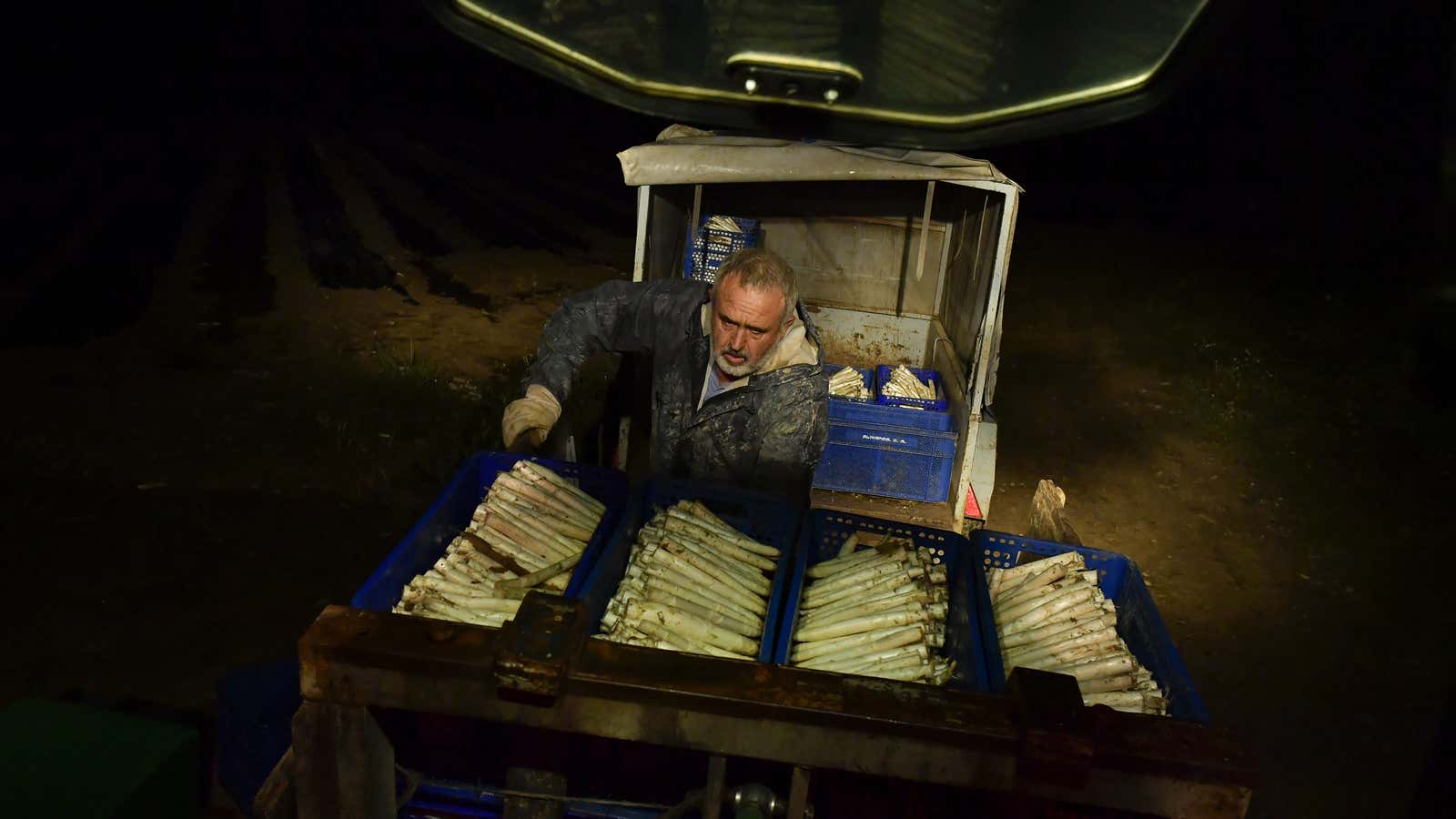Even if you don’t like asparagus, what’s happening to the vegetable right now is reflective of how Covid-19 is threatening stability within the global food system.
Its average price per pound in US grocery stores has plummeted since the novel coronavirus began to spread across the nation. In early January, it hovered around $3. By early April, it had tumbled some 30% to just over $2. For many consumers, the dollar difference will have a minimal impact. But throughout the rest of the supply chain, it’s got big implications.
Prices are set by the relationship between supply and demand, which has been shaken as the pandemic has impacted certain sectors of the agricultural economy. Goods that one country might typically ship to others have been rejiggered as many nations around the globe grapple with economic shutdowns.
It’s not just asparagus growers facing this. US dairy farmers, hurt by the closure of restaurants and foreign export markets, are literally dumping whole milk onto the ground because they have more than they sell after losing 40% of their usual market. Giant meat companies are having to temporarily shutter their plants as workers have caught the virus. And produce pickers have voiced concerns that some of their employers aren’t taking the virus seriously enough, which would impact supply chains if enough farmworkers are stricken with the disease.
The story of asparagus prices has unfolded because of changes in global trade. Mexico accounts for 30% of asparagus exports, and many of those go to both the US and Asia. But because there’s been a downturn in economic activity, shipments to Asia have decreased, which has Mexico redirecting that asparagus to its northern neighbor, according to Mintec, a firm that tracks market prices.
With the US getting more asparagus than is typical, the supply outweighs the demand. That drives down prices, which ultimately impacts US farmers, who, already struggling with labor issues, suddenly aren’t making as much for their goods. That winds up hurting their bottom lines.
Such problems are on the mind of Anastassios Haniotis, the incoming director of the United Nation’s Agricultural Market Information System. In a recent joint statement with his predecessor, he urged countries to band together to keep the global food system stable, writing:
An unexpected and fast decline in commodity prices has hit producers while a strong depreciation of most currencies against the US dollar risks wiping out any price benefits for consumers: a combination that could potentially threaten global food security for some time to come.
To be sure, the overall impact of Covid-19 on the global food system has so far been minimal. But officials such as Haniotis are warning that countries shouldn’t take that for granted. Money lost by farmers today will be affect future harvests, and continued slowdowns in the global economy and disruptions to food supply chains will create problems for the larger system—particularly for countries that rely heavily on food imports to feed their populations.
Dan Kopf contributed to this report.
